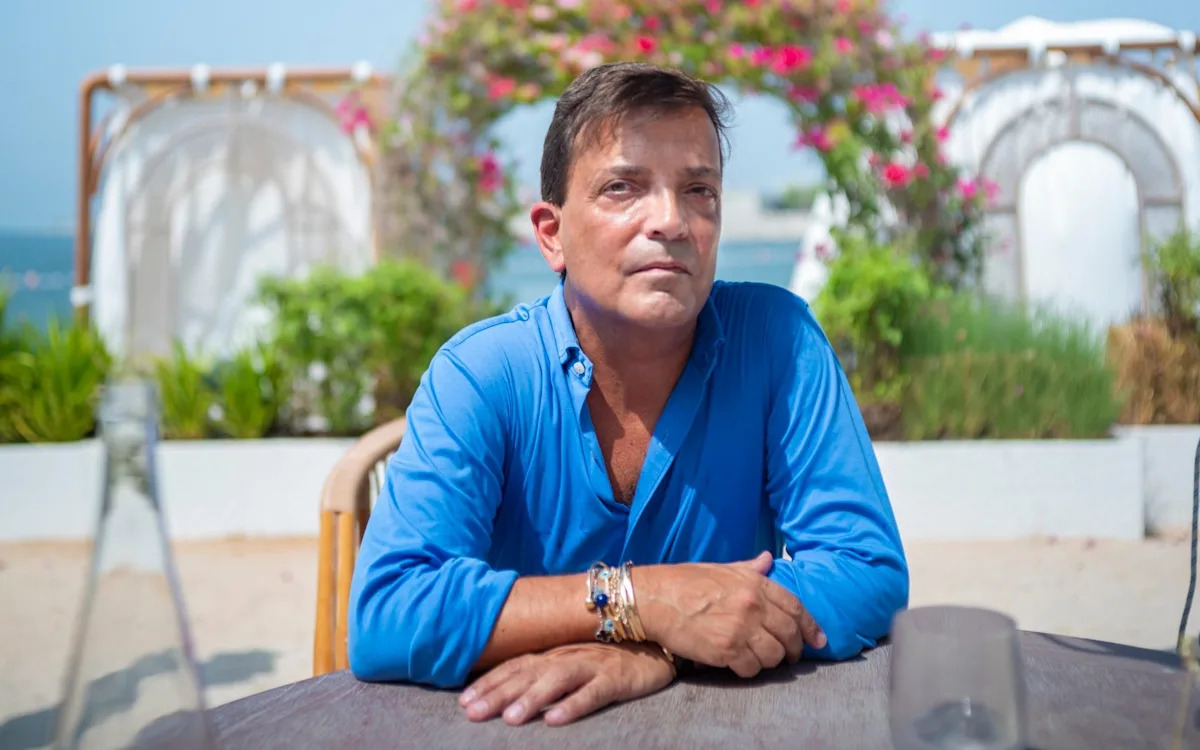James Henderson is sitting in Dubai’s most sought-after beach club. His antique Cartier watch glistens in the sunshine, and his blue Gucci loafers are speckled with just the right amount of sand. The clear blue waters of the Arabian Gulf make for a sparkling backdrop as he delicately picks his way through a starter of grilled octopus, which at £35, is suitably expensive and delicious.
I ask him my opening question: “James, how did it all go so wrong?”
The question is not as stupid as it seems. Eight years ago, James Henderson, public relations supremo who advised the rich, famous and royalty, lost the lot. Or at least almost everything.
His company, Bell Pottinger, one of the largest public affairs businesses in the world, went bust after it became mired in a South African political scandal; his marriage to one of the world’s most glamorous women was called off; and he found himself homeless, with his reputation in tatters.
Legal lawsuits flew, and Henderson was threatened with insolvency and being struck off.
But subsequently, Henderson, a father-of-four at 60, dusted himself down, refused to feel sorry for himself and is now slowly rebuilding his fortune. He is currently based in Dubai, where all the world’s money seems to be heading, and with another office in London.
He has undergone therapy, come out as bisexual, and last week, found himself back in the centre of a media storm, furiously trying to help his long-time friend and client, the Duchess of York, out of the mire. An email she had sent to Jeffrey Epstein in 2011 after his conviction for sex offences in which she described him as a “steadfast, generous and supreme friend” had come to light last weekend.
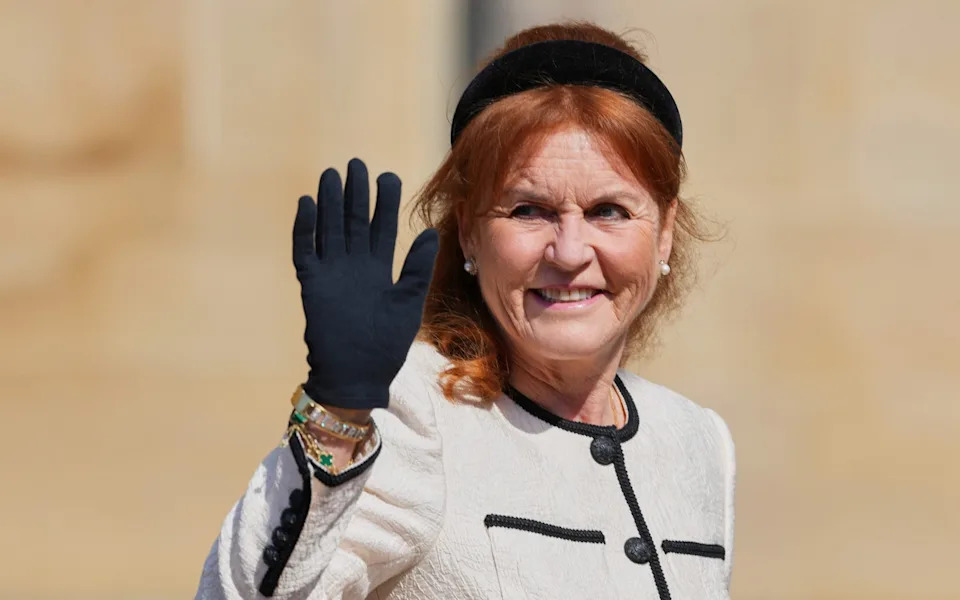
Henderson and the Duchess of York have remained close for many years – Kirsty Wigglesworth/AP Pool
Henderson has been trying to minimise the damage, pointing out to The Telegraph that Epstein had been threatening to “destroy” the Duchess and her family, and that she had only sent the email to protect her family in the face of a threat of a legal action by Epstein. The Duchess’s mistake – such as it was – was to call Epstein a paedophile in an interview in 2011. In the only conversation he ever had with Epstein back in 2011, Henderson says the financier was “chilling”, delivering his threat with a “Hannibal Lecter-style” menace.
Henderson and the Duchess have remained close through the years of turmoil they have both faced. Henderson praises the Duchess for her “loyalty”.
And so I find myself sitting amid the relaxed splendour of the Sirene By Gaia beach club in Dubai, asking Henderson how did his life come to turn upside down? “That,” he responds with some seriousness, “is a big question that requires a big answer,” adding a little cryptically: “There were so many factors in play, and not all of them were in my control.”
The collapse of Bell Pottinger
In 2016, Bell Pottinger was hired by Oakbay Investments, a firm controlled by the wealthy Gupta family in South Africa, and close to the country’s former president, Jacob Zuma, to run a “dirty tricks” campaign, allegedly intended to stir up racial tensions using fake social media accounts.
Bell Pottinger, paid £100,000 a month by Oakbay, was enlisted to run a PR campaign highlighting economic inequality in South Africa with the goal of persuading South Africans of colour that they were poorer than they should be because of the grip on the economy held by white-owned corporations.
Within a year, Bell Pottinger was being accused by South Africa’s opposition, Democratic Alliance, of running a “hateful and divisive campaign”, and had itself become the story. Henderson was forced to resign as its chief executive, despite being its largest shareholder. Shortly after, Bell Pottinger collapsed, and Henderson lost the lot.
“From my perspective, I never met the client [the Guptas] or even emailed them… But I regret that I didn’t ask enough questions, but neither did anyone sit me down and highlight the severity or the complexity of being involved with the Guptas,” he says.
Bell Pottinger, founded by Margaret Thatcher’s “favourite spin doctor”, Tim Bell, was one of the world’s biggest PR and lobbying firms when Henderson bought a 25pc stake in it back in 2012. At the time, the company was valued at £26 million. It all gets a bit messy after that, but in 2016, Lord Bell resigned as chairman of Bell Pottinger with immediate effect.
Meanwhile Henderson, divorced from his first wife, had met Heather Kerzner at a gala charity dinner in 2015 hosted by the Duchess of York. By 2017, the couple were engaged, and Ms Kerzner, the glamorous ex-wife of Sol Kerzner, the casino magnate who built the Sun City resort in apartheid South Africa, had invested 15pc in her fiancé’s company.
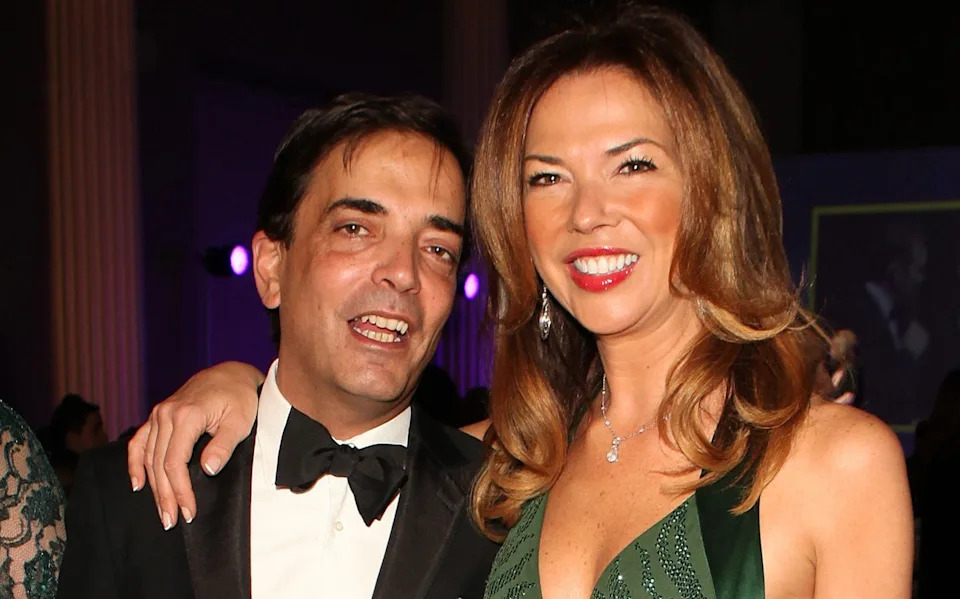
Henderson, and his ex-wife, Heather Kerzner, attending an event at Banqueting House in London – David M. Benett/Getty Images Europe
From the outside, Henderson had it all. He moved into his fiancée’s Chelsea townhouse, and had a date set in November 2017 for a spectacular wedding. Then the wheels came off.
With Lord Bell, who died in 2019 at the age of 77, ousted from his own firm, leaks of emails exposed Bell Pottinger’s divisive campaign conducted on behalf of the Guptas. Lord Bell had been involved in the pitch to grab the Guptas’ account. Henderson has his suspicions about where the leaks came from.
“I don’t want to speak ill of the dead, but Tim Bell clearly had an agenda against me,” he says, “even though I had tried always to act with the respect he was due for being a titan of the PR industry, and the architect of modern-day PR.
“I don’t want to accuse him [of leaking] when I may have knowledge, but I don’t have black and white [proof]. He was very, very open in his hostility towards me.”
By September 2017, Bell Pottinger had collapsed into administration unable – as a PR company – to survive a PR nightmare of its own.
Henderson, who declines today to talk about Ms Kerzner, found his wedding called off, and moved out of his fiancée’s house. His wealth, nearly all invested in shares in his own company, was wiped out overnight.
“I can’t quantify how much was lost because no valuation of the business was done at the time. However, everything I had done was invested in my shares in Bell Pottinger,” he says. “Everything went over about a week. At its peak, I was receiving death threats. In South Africa, it was very, very emotive. In fairness, as chief executive, the buck stops with you. But I lost my reputation, and that was the most valuable thing to ever lose.”
Paraphrasing Warren Buffett, he adds: “You can build a reputation in 30 years and lose it in two seconds. I have been there. I felt like I was in the movie Trading Places. Two weeks later, I didn’t know how I was going to afford a loaf of bread. I had lost everything.”
The aftermath
Henderson was 52 when Bell Pottinger collapsed, and had never previously been on “the receiving end of the Machiavellian sophistication of top corporate life”.
He continues, he says, to feel “guilty” about what happened to his staff who all lost their jobs, but the scandal had an “energy of its own”.
“I was in complete shock for the best part of 12 months,” he recalls of the immediate aftermath, “You work on autopilot, and you just try and find a way of getting back on your horse. I just tried to move forward. I didn’t dwell on it. Everything changed overnight except my bills.”
The crisis didn’t end there. The authorities tried to have him disqualified as a director which he fought tooth and nail, and won.
“Everybody said to me, ‘This too shall pass.’ But I just thought, ‘This is taking a f—ing long time.’ And even eight years on, there are still ramifications today. Occasionally, you’re about to get appointed to a client, and then they do that Google search. All of a sudden, the potential client is no longer available to take your calls.”
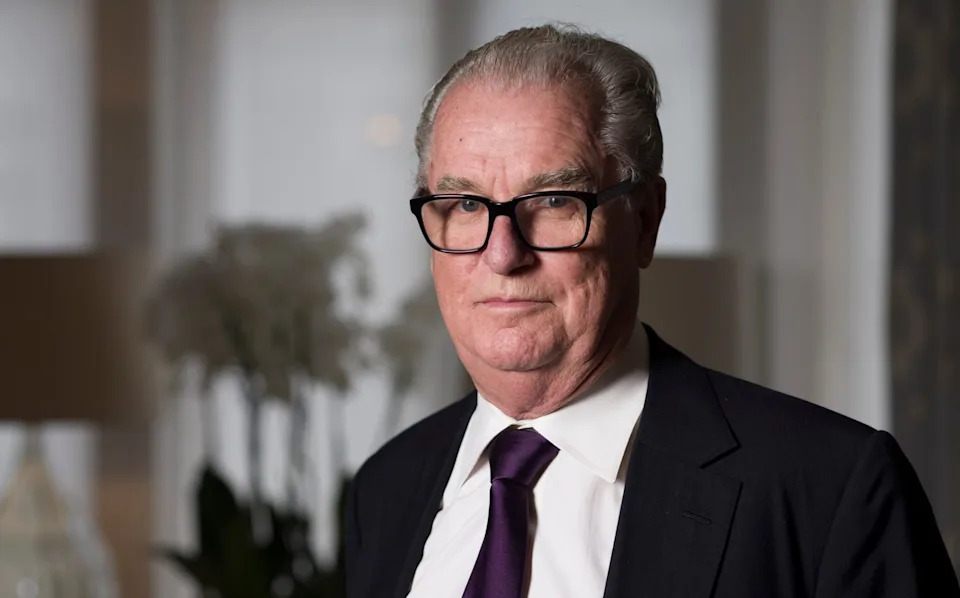
‘[The late] Lord Bell was very, very open in his hostility towards me,’ says Henderson – Andrew Crowley
Coming out of the morass, he realised there were friends out there who stuck with him: “People of a certain age were the ones who reached out to help me,” he says – including the likes of Rupert Hambro and Rocco Forte, “old-school business people” who had seen it all before.
A special mention goes to the Duchess of York. In 2010, Henderson was drafted in to offer emergency crisis management after she was caught in a News of the World sting operation, offering access to her ex-husband, Prince Andrew, in exchange for £500,000. The Duchess’s reputation was at “rock bottom”, and Henderson helped her through it so that “when Bell Pottinger happened, her loyalty was there for me”.
He adds: “We have both been loyal to each other. We have both had empathy and understanding. The mental impact of losing everything, and losing a reputation, is something that we could bond over. Few people lose their reputations to that extent.
“She has had battle after battle after battle. Her loyalty to me has been exceptional. And she has done so much for so many people, most of which is not written about or appreciated. And she has not sought for it to be written about or appreciated, contrary to what people think.”
He warms to the theme. “She [the Duchess] is always the most generous person in the room. She is also an amazing mother. Her commitment to [her children] and ensuring they have a constant family unit is exemplary.”
A new chapter
Henderson’s connections remain huge, and his contacts book across various industries is vast. He seems to know pretty much everyone in society still, a relic of a former life and a rarefied upbringing as the son of a successful London businessman, who met his Brazilian mother while working in São Paolo.
Incidentally, his brother-in-law (although Henderson won’t discuss it), is James Gilbey, an heir to Gilbey gin, who prior to meeting and marrying Henderson’s sister, famously had an affair with Princess Diana. Their bugged phone calls were made public in the scandal dubbed, “Squidgygate”.
In the immediate aftermath of Bell Pottinger’s demise, Henderson set up Soho Communications in London, and subsequently JBH PR in Dubai, pushing through the deep “shock” and “trauma” of all that had happened. Henderson moved to Dubai in 2023 in the wake of Covid, employing 14 people across both countries (Bell Pottinger had employed 300), and is hopeful of turning a million pound profit across both businesses by the end of the year. “There is an energy to what is going on in the UAE that is giving me a great opportunity,” he says.
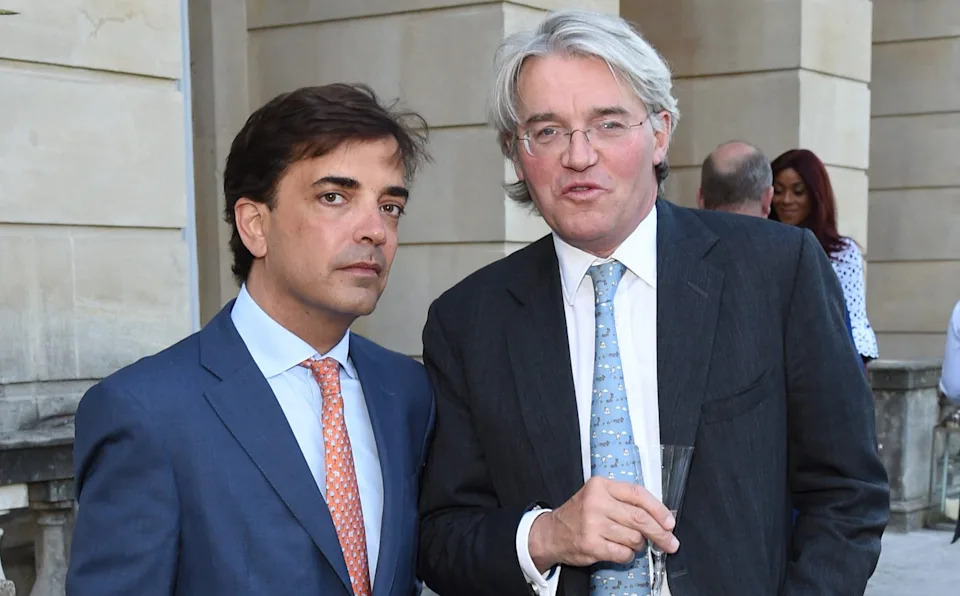
Henderson (left) and Andrew Mitchell (right) attending Bell Pottinger’s summer party at Lancaster House in London – David M. Benett/Getty Images Europe
Henderson has come a long way. He’s told his children he is now bisexual and they were supportive. “I think sexuality’s always been fluid with me. And that has come out in recent years,” he explains, adding: “One of the benefits of what happened is I fully understand who I am, and I am proud of who I am. You have to accept who you are, things that I thought would be huge, huge issues 10 years ago. But in the context of life, it’s all fine as long as you own who you are.”
The “trauma” of losing everything, he says, “stripped him bare”. He pauses: “You learn straight away what’s important, who you can trust.”
I’ve known James Henderson for some years now. I first met him shortly after Bell Pottinger collapsed. I detect a happiness that perhaps was missing eight years ago. He’s on what he admits is his maybe fourth life. “I did the Waitrose [family] life for many years; I did the building-a-business, entrepreneurial life; and the City life.
“Now I’m doing the venture in Dubai. I had an incredible life, and I never realised how incredible it was till I didn’t have it any more. But I’ve never dwelt on that because I’d be turning around and looking in the opposite direction, which would be a lot of waste of energy.”
Henderson shows me the bangles on his right wrist. They are a sign of his moving on; jewellery made from old cufflinks and the like that he no longer has a use for. He has left London’s high society, and to an extent, it has left him behind too. He says he doesn’t miss the trappings of wealth of his old lifestyle, choosing to travel economy class on the many trips back to London or on to New York.
Outside the beach club, though, there’s a lovely Roller in the car park that comes with a price tag of close to half a million pounds. Henderson looks longingly at it. One day, he wonders out loud, it might be his.

